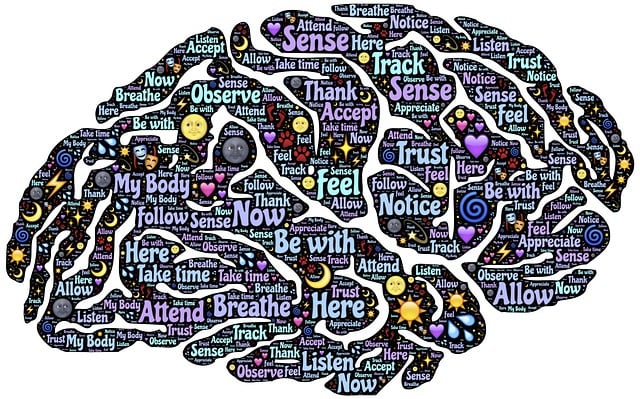To market a mental wellness app effectively, understand young adults' relationship struggles, including loneliness, low self-esteem, and anxiety, stemming from complex interpersonal issues. Create an inclusive space promoting open dialogue about support. Offer empathy-driven content, trauma services, and mind-over-matter principles tailored to relationship challenges. Use SEO keywords like "Therapy for Young Adults Relationship Issues" in marketing efforts. Analyze user demographics and preferences through market research and competitive analysis. Develop a unique value proposition highlighting crisis intervention tools, personalized guidance, and supportive communities. Employ engaging strategies on social media, user-generated content, workshops, webinars, and influencer collaborations. Track KPIs like downloads, active users, session duration, and exercise completion rates for continuous improvement based on user feedback.
In today’s digital age, mental wellness apps offer a promising solution for young adults grappling with relationship issues. This article provides a comprehensive guide on developing an effective marketing strategy for such apps. We’ll explore understanding your target audience, conducting market research, crafting compelling value propositions, leveraging suitable marketing channels, and measuring success through KPIs. By integrating these elements, you can effectively reach and support young adults seeking therapy for their relationship challenges.
- Understanding the Target Audience: Young Adults Facing Relationship Issues
- Market Research and Analysis for Mental Wellness Apps
- Crafting a Unique Value Proposition for Your App
- Marketing Channels and Strategies for Effective Outreach
- Measuring Success: Key Performance Indicators (KPIs) and Feedback Loop
Understanding the Target Audience: Young Adults Facing Relationship Issues

Understanding your target audience is a crucial step in developing an effective marketing strategy for a mental wellness app, especially when addressing a specific demographic like young adults facing relationship issues. This demographic often struggles with feelings of loneliness, low self-esteem, and anxiety stemming from complex interpersonal dynamics. They may be hesitant to seek help due to stigma or a lack of awareness about available resources.
Your marketing efforts should focus on creating an inclusive environment that encourages open dialogue and promotes the idea that seeking support is a sign of strength. By utilizing empathy-building strategies within your app’s content, you can attract and engage this audience. Highlighting trauma support services and mind-over-matter principles tailored to relationship challenges will resonate with young adults seeking tools to navigate their emotional well-being.
Market Research and Analysis for Mental Wellness Apps

In today’s digital era, mental wellness apps are becoming increasingly popular as people seek convenient and accessible therapy for young adults facing relationship issues. Market research is crucial to understanding the competitive landscape and identifying gaps in existing solutions. By analyzing user demographics, preferences, and pain points related to mental health challenges like anxiety, depression, and relationship difficulties, app developers can tailor their products to specific needs. This involves delving into trends such as the growing interest in mindfulness meditation and compassion cultivation practices as stress reduction methods.
Competitive analysis is essential, examining popular mental wellness apps on the market and identifying unique selling points. Research should also explore target audiences’ behaviors and preferences regarding app functionality, content types, and engagement strategies. For example, young adults might respond positively to interactive features, gamified elements, or social integration that foster a sense of community. Understanding these insights allows developers to create apps that stand out, offering innovative approaches to address common mental health concerns and relationship issues in a digital space.
Crafting a Unique Value Proposition for Your App

In today’s digital age, crafting a compelling unique value proposition (UVP) for your mental wellness app is key to attracting and retaining users. Your UVP should articulate how your app offers a distinct and effective approach to addressing relationship issues and providing therapy for young adults. Differentiate yourself by focusing on what sets your platform apart—whether it’s innovative features, personalized guidance, or access to a supportive community. For instance, highlight tools tailored for crisis intervention or trauma support services, which are increasingly sought after in the mental wellness space.
A well-defined UVP should resonate with your target audience, young adults facing relationship challenges and seeking therapeutic assistance. Emphasize how your app provides convenient, accessible resources to help users navigate their mental health journeys. Incorporate elements like interactive exercises, expert-led Mental Wellness Podcast Series Production, or Crisis Intervention Guidance to showcase a comprehensive approach to mental wellness. By clearly communicating these unique offerings, you can attract those actively looking for solutions and establish your app as a trusted guide in managing relationship issues.
Marketing Channels and Strategies for Effective Outreach

Marketing channels for a mental wellness app targeted at young adults dealing with relationship issues should be multi-faceted and engaging. Social media platforms like Instagram, TikTok, and Snapchat offer powerful tools to connect with this demographic through organic content, influencer partnerships, and targeted ads. Leveraging user-generated content through success stories or challenges can build trust and credibility, highlighting the app’s effectiveness in a relatable way.
Additionally, incorporating strategies such as Mental Health Education Programs Design workshops, webinars, and online forums can foster community engagement and enhance brand visibility. These platforms facilitate open conversations about relationship struggles and coping Skills Development, positioning the app as a valuable resource. Collaborating with mental health influencers or incorporating Mental Health Awareness campaigns further amplifies reach while emphasizing the app’s commitment to destigmatizing therapy for young adults.
Measuring Success: Key Performance Indicators (KPIs) and Feedback Loop

Measuring success is a critical component of any marketing strategy for mental wellness apps, especially when targeting young adults dealing with relationship issues. Key Performance Indicators (KPIs) provide a structured way to evaluate the effectiveness of marketing campaigns and user engagement. For an app focused on therapy for young adults, KPIs might include tracking the number of downloads, active users, session duration, and completion rates of self-awareness exercises. By monitoring these metrics, developers can identify what features resonate with their audience and where improvements are needed.
A robust feedback loop is equally essential. Encouraging users to provide feedback through in-app reviews, surveys, or direct communication allows for continuous improvement. Incorporating strategies like empathy building and communication skills training through the app’s content, such as Self-Awareness Exercises and Communication Strategies, can enhance user experience and satisfaction. This iterative process ensures that the mental wellness app remains relevant and tailored to the evolving needs of young adults seeking support for their relationship issues.
Developing an effective marketing strategy for a mental wellness app targeting young adults facing relationship issues involves understanding their unique needs and preferences. By leveraging market research, crafting a compelling value proposition, and utilizing appropriate marketing channels, you can reach this demographic effectively. Through the integration of specific Therapy for Young Adults Relationship Issues keywords, your campaign can enhance its online visibility. Measurable KPIs and continuous feedback loops are essential to refining your strategy and ensuring your app stands out in a competitive market, ultimately fostering a positive impact on young adults’ mental health journeys.









